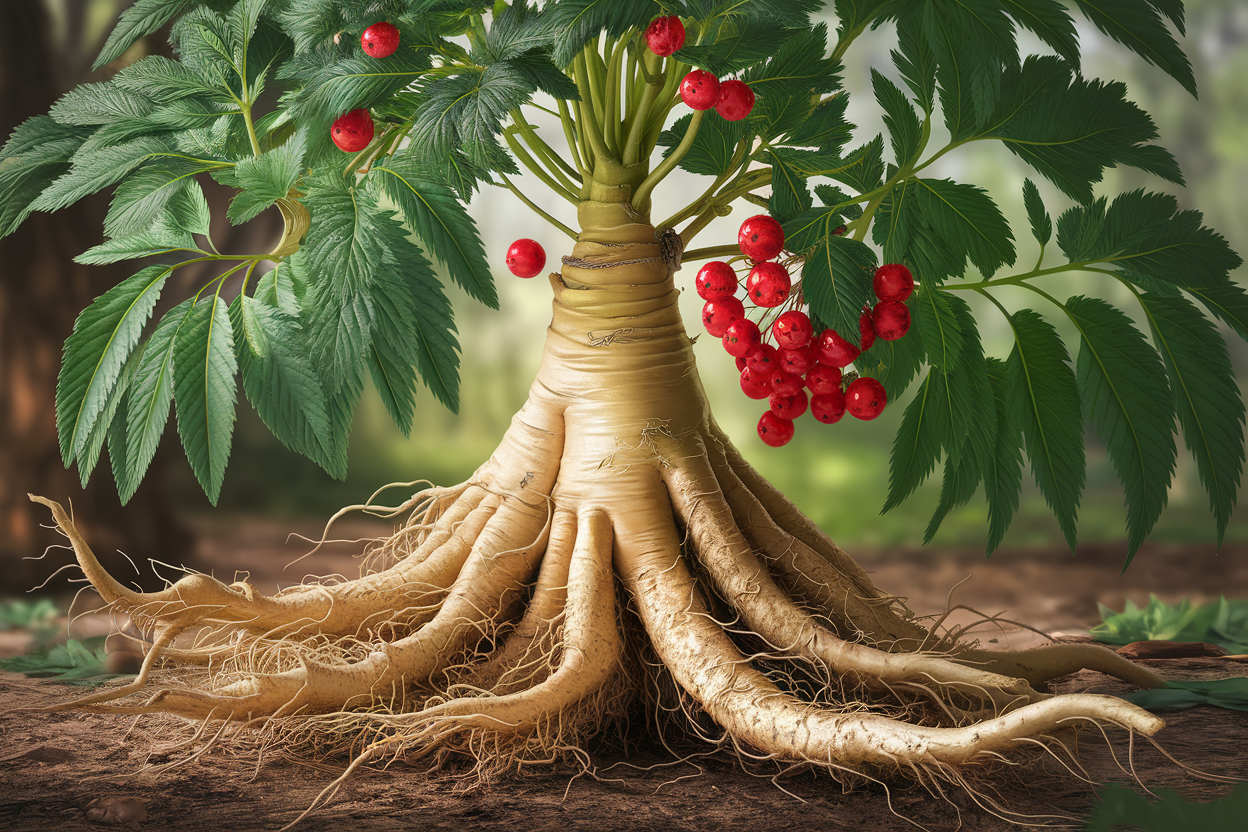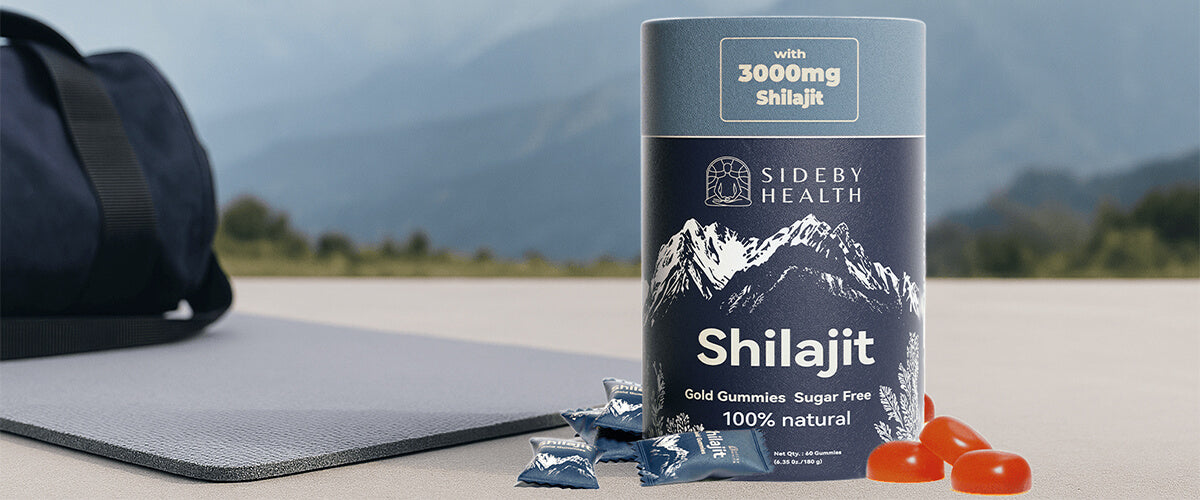
Panax Ginseng: The King of Adaptogens
Panax ginseng, commonly known as Korean ginseng or Asian ginseng, is one of the most revered medicinal herbs in traditional Chinese medicine (TCM) and global herbalism. Belonging to the Araliaceae family, it has been used for over 2,000 years as a tonic for vitality, longevity, and mental clarity. The term "Panax" derives from the Greek word "panacea," meaning "cure-all," reflecting its wide-ranging health benefits.

Botanical Characteristics
This slow-growing perennial plant thrives in cooler climates, primarily in Korea, China, and Siberia. It has forked roots, green oval leaves, and red berries. The root, the most valuable part, takes 4–6 years to mature and is classified as:
- White Ginseng (peeled and sun-dried)
- Red Ginseng (steamed and dried, enhancing potency)

Key Bioactive Compounds
Ginseng’s benefits come from ginsenosides, its primary active compounds, along with:
- Polysaccharides (immune support)
- Polyacetylenes (anti-inflammatory)
- Antioxidants (combat oxidative stress)
Health Benefits & Modern Research
- Boosts Energy & Reduces Fatigue
- Enhances mitochondrial function, improving stamina (studies show reduced fatigue in athletes and chronic fatigue patients).
Supports Cognitive Function
- Increases acetylcholine levels, improving memory and focus.
- Strengthens Immunity
- Stimulates white blood cell activity, reducing infection risks.
- Regulates Stress & Mood
Acts as an adaptogen, lowering cortisol and alleviating anxiety.
Enhances Sexual Health
Improves erectile function and testosterone level by boosting nitric oxide production for men.
Balances Blood Sugar
Shown to improve insulin sensitivity in diabetics.
Avoid excessive use (may cause insomnia, headaches, or digestive issues).
Contraindications: Not recommended for those on blood thinners or stimulants.
Panax ginseng remains a cornerstone of herbal medicine, backed by both tradition and science. Whether used for energy, brain health, or immune support, its adaptogenic properties make it a powerful natural remedy. Further research continues to uncover its full potential, solidifying its status as the "King of Herbs."









